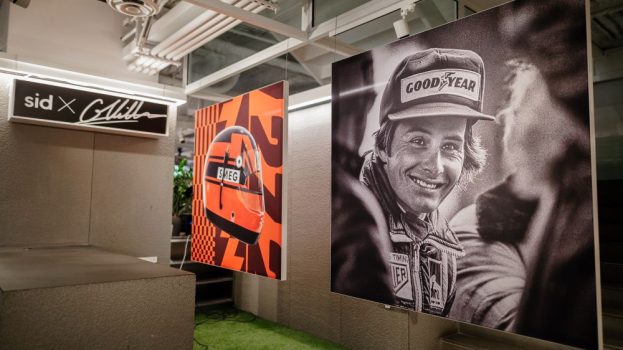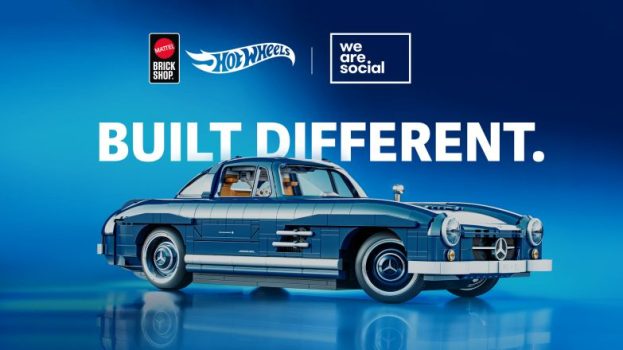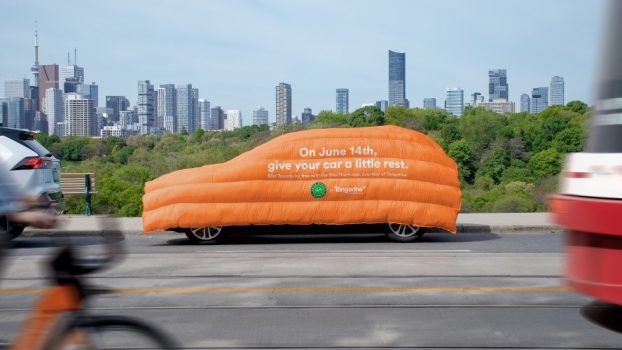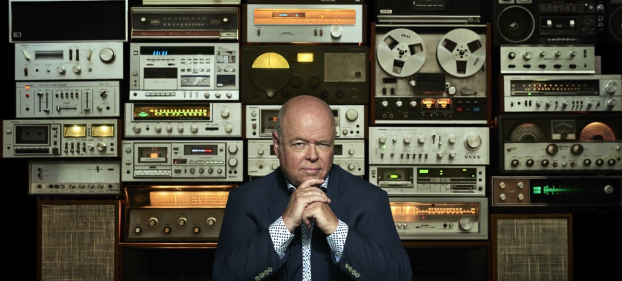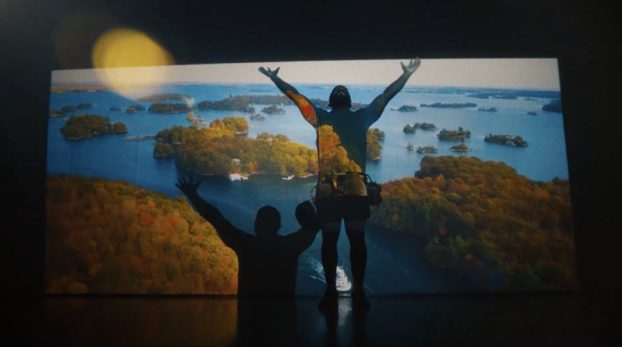A tiny girl in quaint Czech garb totters across a stage in Prague. The silence is eerie in the steamy ballroom as a thousand eyes glom on to the cushion she’s carrying. On it is an envelope containing the name of the city that will host the Winter Olympics in 2010.
Jacques Rogge, president of the International Olympic Committee, rips open the envelope and announces which of the finalists has won. It’s not Salzburg, Austria, and it’s not Pyeongchang, South Korea. It’s Vancouver, British Columbia.
The crowd goes wild, especially the 100-strong Canadian contingent in their white shirts, red ties and dark suits with good-luck loonies in the pockets.
‘Oh my God, we’re going home with what we came for!’ That’s how Andrea Shaw, VP of communications for the Vancouver 2010 Olympic Bid Corporation, says she and everyone else on her team felt on July 2.
Composed of representatives from governments and the First Nations, community interest organizations, sports groups and business leaders, the Bid Corp worked flat out for three years to ensure that its ‘Sea-to-Sky Games’ would beat out the six other original candidates.
By all accounts, the winning formula wasn’t just the West Coast’s rich natural assets as a winter venue, the strategic use of homegrown Olympic champs as lobbyists and a budget of $35 million. It was also a synergy between the Bid Corp and its marketing partners that combined cunning ingenuity, fancy footwork, astonishing stamina and team spirit worthy of the winningest athletes in the world.
Together, Shaw and VP marketing Linda Oglov, oversaw a massive, multi-pronged marketing effort on an international scale. At its peak, the Bid Corp included 18 full-time, part-time and contract staffers in the marketing and communications teams.
Neeta Soni was the Bid Corp’s director of marketing, working to produce large-scale marketing campaigns on behalf of top sponsors, such as Molson, leading up to the bid – no easy task either. ‘At that time, we weren’t an event. We were a concept – we were a dream to host the games.’
For achieving one electrifying moment and making Canada victorious – especially at a time when our catastrophe-battered country urgently needs international acclaim – Strategy names the Vancouver Bid Corp Top Client in the Lobby Group category.
‘There’s no shortage of sports analogies for this story,’ says Dave Martin, managing director and chief creative officer at TBWA/Vancouver, which was the Bid Corp’s AOR. ‘But the one that really nails it for us, because we only had 20 months, is that it was a marathon done at the speed of a sprint.
‘Fortunately, we found our voice early and expressed it in the campaign line, ‘It’s our time to shine’ – meaning, let’s bring out our best of everything, not just athletes, and win or lose, we’ll show the world what we can do.’
Adds Shaw: ‘We decided to differentiate Canada from the competition by [portraying it as] exactly what we are: a very young, very forward-looking country with incredible geography, cultural diversity and fair-play values [plus] a sophisticated urban centre right on the Pacific Ocean and a world-class alpine resort [Whistler] nearby. Then we never wavered from that theme.’
Even with this powerful plan in place, John Furlong, the Bid Corp’s CEO, recalls worrying that the entire exercise ‘was like flying a rocket to the moon. If you’re not properly aimed at the target, if you’re off by even half a degree at the beginning, you’ll never get there.’
So tacticians and lobbyists from around the world who, he says, ‘really know what it takes’ to win the Olympics, were asked to help, ‘because we realized that even though Canada is respected internationally and viewed as a special place, we don’t necessarily have a lot of friends.
‘Austria sits in a cluster of about 60 and South Korea in a cluster of 20 to 40,’ Furlong explains. ‘But we have only one close friend, the United States,’ which actually preferred that Canada not win because it might scupper the chance of staging the 2012 Olympics in New York.
Meanwhile, says Martin, a massive effort was put into capturing the attention of the international media ‘so they would educate and inspire the world about Vancouver as a place with mountains, sea, sky and unspoiled wildlife and [people whose] nature is to share our spectacular land with everyone.’
To overcome the massive language barrier inherent in this effort, he says his team ‘made visuals the common language’ and disseminated as many dynamic images as possible from the tourism offices of B.C., Vancouver, Canada and Whistler.
‘Another key component in our international platform was the idea that Canadians keep their promises and that we are a nation that plays hard but fair and is inclusive, egalitarian and tolerant,’ says Martin.
But all of these activities would have to feed into influencing the IOC members who ultimately vote yea or nay, says Andrew Arntfield, president of Toronto’s Field Day agency (formerly Art & Soul). Acting as AOR for Toronto’s unsuccessful bid for the 2008 Summer Olympics taught him that ‘it’s crucial to understand who these people are, what motivates them and what mandates they have to fulfill.’
You’ve also got to get their attention by somehow crashing through all the other bumph that’s bombarding them, says Raquel Hirsch. Her Vancouver company, Hirsch Strategies, worked with the Bid Corp to come up with an innovative e-mail strategy she believes was a first in Olympic history.
‘We knew that the last important leg of the race would be the period between January and July, when 110 IOC members would vote,’ she explains. ‘So we struck up a one-to-one dialogue with each one of them.’
This consisted of periodic e-mails aimed at achieving what Hirsch calls ‘a dynamic left brain/right brain hit’ by combining text with music and snippets of flash movies. Whenever something was going on that the Bid Corp wanted to convey to the IOC, a quick ‘teaser’ e-mail was fired off to drive the readers to the relevant microsite for a complete presentation.
‘Have you ever seen Canada’s spectacular West Coast?’ one of these messages asked, and then answered: ‘Click on this link to get a glimpse of the beauty of our province and the environment that Olympians, Paralympians and spectators will enjoy.’
‘This piece of the bigger puzzle added another level of persuasion,’ says Hirsch, ‘especially for those who weren’t able to visit Vancouver.’
Ironically, as crucial as it was to communicate convincingly with the IOC, it was actually a savvy PR pitch to British Columbians, and specifically the hometown audience, that helped the venture survive a dramatic cliffhanger in February.
The Bid Corp had held a series of public meetings across the province to drum up enthusiasm and provide information on the games, venues and business opportunities as well as to seek volunteers – whose ranks, by the way, swelled to 50,000-plus even before the announcement of Vancouver’s win was made.
But there were still plenty of vocal opponents to the bid, who argued that the funds earmarked for the Olympics should go instead to education, health care and other social programs.
With a mere week and a half before an IOC delegation would arrive in town to evaluate Vancouver’s ability to host the Games, the Bid Corp had to walk a tightwire Martin says they’d never have chosen on their own. Thanks to a campaign pledge made months earlier by mayor Larry Campbell, they were obliged to hold a citywide plebiscite on whether the bid should go ahead at all.
If the ‘no’ faction won, which Martin says has happened in every other such referendum in Olympic history, it could spell disaster.
Even so, he says the bid team refused to go negative in any way. ‘We simply reiterated to opponents and everyone else our overall message that it’s not just about sports, it’s about how landing the Olympics would be a catalyst for growth in both business and social programs in B.C. and in Canada because it would generate tourism and tax revenue as well as infrastructure and other improvements.’
The plebiscite turned out to be a blessing in disguise when the ‘yes’ vote won because it really impressed the IOC folks when they were instantly told about it by a jubilant e-mail saying: ‘With an overwhelming ‘YES’ majority of 64%, the people of Vancouver sent a welcoming invitation to the worldwide Olympic Family today…’
And when the evaluation committee hit town, Martin says one member made a remark to the effect that ‘Any question we may have had about your ability as marketers was answered when you carried the day with such a strong mandate from your citizens.’
The final act in Vancouver’s bid campaign was the preparation and delivery of a 45-minute presentation in Prague. Budgeted at $275,000, it featured an RCMP escort in full regalia and an evocative video containing lyrics from Bryan Adams’s Here I Am, plus a depiction of what Vancouver might look like in 2010 if the Olympics come to town.
There were also live speeches by, among others, hockey idol Wayne Gretzky, who quipped that he would keep it brief by eliminating all the ‘eh’s.’
As effective as the Canadian presentation obviously proved to be, Furlong says he can’t remember a moment of it, even his own contribution.
‘All I was really aware of was believing in my heart – just as a perfectly-prepared athlete does – that if we lost, there couldn’t be any regrets because we did everything we set out to do and we did it with honour. But underneath, I really thought we would win.’

